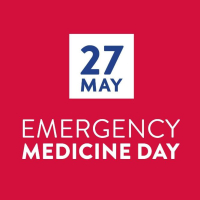
The connections between emergency medicine and climate change are multifaceted and profound, as climate change directly and indirectly influences health emergencies and the demands placed on emergency medical services. Here are some key connections:
1. Increased Frequency and Intensity of Natural Disasters
- Heatwaves: More frequent and severe heatwaves lead to an increase in heat-related illnesses such as heatstroke, dehydration, and exacerbation of chronic conditions. Emergency departments often see a spike in patient volume during such events.
- Extreme Weather Events: Hurricanes, floods, wildfires, and storms are becoming more frequent and severe due to climate change. These events result in injuries, trauma, and the displacement of populations, requiring immediate medical attention and overwhelming emergency services.
2. Impact on Infrastructure and Access to Care
- Damage to Healthcare Facilities: Extreme weather can damage hospitals and clinics, disrupting services and making it difficult to provide care to those in need. This necessitates emergency medical response and disaster preparedness.
- Transportation Disruptions: Floods, storms, and other climate-related events can hinder transportation networks, delaying the arrival of emergency services and making it challenging for patients to reach healthcare facilities.
3. Vector-Borne and Infectious Diseases
- Spread of Diseases: Climate change affects the distribution of vectors such as mosquitoes and ticks, leading to the spread of diseases like malaria, dengue fever, Zika virus, and Lyme disease. Emergency departments must be prepared to diagnose and treat these conditions, especially in regions where they were previously uncommon.
- Waterborne Diseases: Increased flooding and changes in water quality can lead to outbreaks of waterborne diseases like cholera, requiring rapid medical response to control and treat outbreaks.
4. Respiratory and Cardiovascular Issues
- Air Quality: Rising temperatures and increased pollutants can worsen air quality, leading to higher incidences of respiratory and cardiovascular problems, including asthma attacks and heart disease exacerbations. Emergency departments often see an increase in these cases during periods of poor air quality.
- Wildfire Smoke: Wildfires, exacerbated by climate change, produce smoke that can travel long distances, causing respiratory issues even far from the fire's location. This can result in surges in emergency department visits for respiratory distress.
5. Mental Health Impacts
- Trauma and Stress: Natural disasters and climate-related events can cause significant psychological stress and trauma, leading to increased cases of anxiety, depression, PTSD, and other mental health issues. Emergency medicine must address the immediate mental health needs of affected individuals.
- Chronic Stress: The ongoing threat and reality of climate change can contribute to chronic stress, affecting mental health and potentially leading to more emergency psychiatric cases.
6. Vulnerable Populations
- At-Risk Groups: Certain populations, such as the elderly, children, low-income communities, and those with preexisting health conditions, are more vulnerable to the health impacts of climate change. Emergency medicine needs to be tailored to address the specific needs of these groups during climate-related events.
7. Preparedness and Response
- Disaster Preparedness: Emergency medicine professionals are integral to disaster preparedness and response planning, ensuring that healthcare systems are resilient and capable of managing the surge in medical needs during climate-related emergencies.
- Training and Resources: Ongoing training and allocation of resources are necessary for emergency medical personnel to effectively respond to the health impacts of climate change, including mass casualty events and large-scale public health emergencies.
8. Long-term Health Impacts
- Chronic Conditions: Climate change can exacerbate chronic conditions, leading to more frequent emergencies and hospital admissions. Emergency medicine must adapt to the changing patterns of chronic disease exacerbations related to climate impacts.
In summary, the connections between emergency medicine and climate change highlight the need for a robust, adaptable, and proactive emergency healthcare system. This system must be capable of responding to the immediate and long-term health impacts of a changing climate, ensuring that communities can withstand and recover from the health challenges posed by climate-related events.
